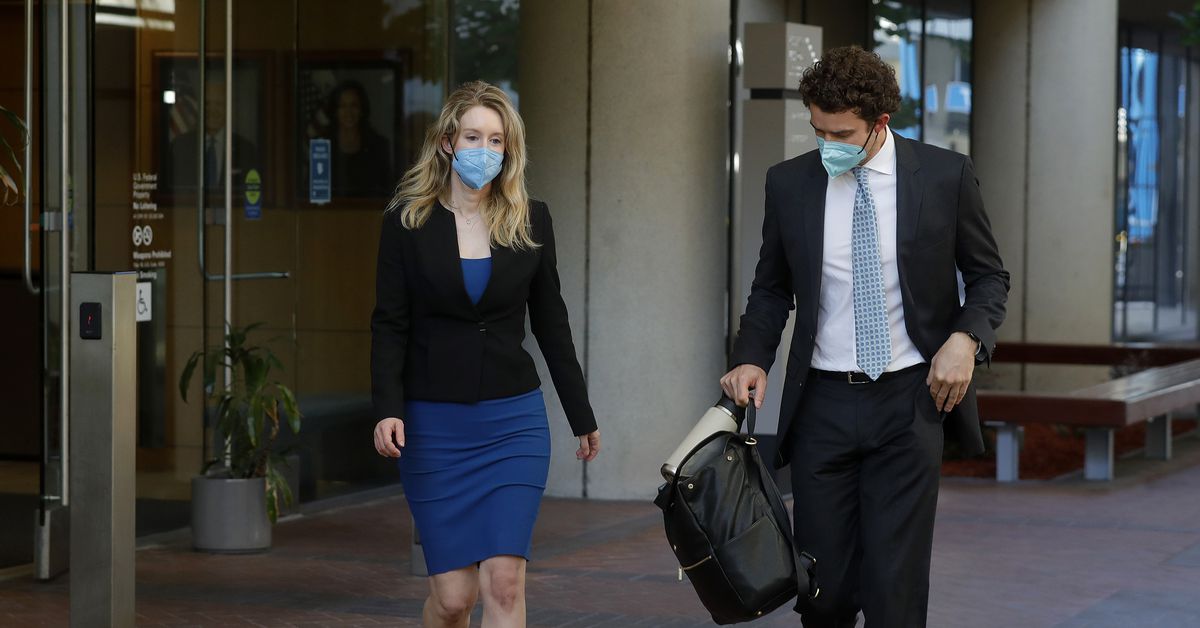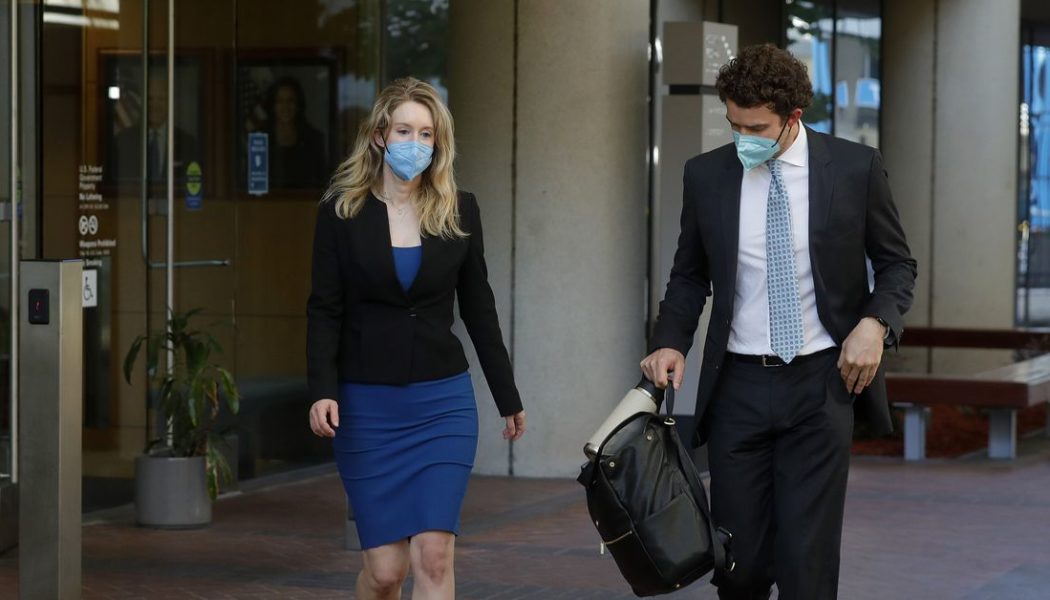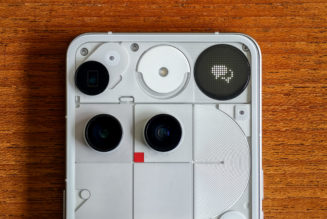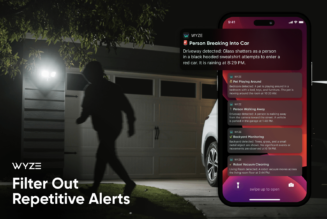
Lance Wade didn’t say “snitches get stitches” out loud, but with his behavior in the courtroom today he didn’t have to. It’s the most aggressive performance we’ve seen so far from Elizabeth Holmes’ defense attorney, and that’s probably because the latest testimony is just that bad for Holmes’ case.
On the stand today was former Theranos lab director Adam Rosendorff, who was responsible for the lab where patient results were processed. In his opening statement, Wade was clear that he was prepared to blame Theranos lab directors — including Rosendorff — for many of the company’s problems. His questioning of Rosendorff drew two successful objections from the government, for argumentativeness.
Until now, the defense used a softer approach. Faced with whistleblower Erika Cheung, Holmes’ lawyers didn’t try to demolish her credibility. Wade was solicitous, even kind — and used her to introduce some documents and testimony that would bolster his client’s case. With Surekha Gangakhedkar, who worked in R&D and helped develop many of the company’s tests, Wade introduced evidence suggesting that Holmes was a thoughtful boss, one who even tried to talk Gangakhedkar out of quitting.
But today, Wade appeared trapped from the beginning of his cross-examination. Rosendorff’s testimony earlier in the day had brought into evidence emails that looked awful for Holmes, who is on trial for wire fraud and conspiracy to commit wire fraud. They showed Rosendorff getting increasingly frustrated with the tests, management, and Holmes’ brother, Christian, who’d been inserted between Rosendorff and complaining doctors. Perhaps that’s why Wade began by aggressively attacking Rosendorff’s credibility.
Wade listed a number of federal agents — with the FBI, the Postal Service, and the FDA — that Rosendorff had been in a room with, and seemed consternated that Rosendorff didn’t remember all their names. (In some cases, Rosendorff testified, those agents hadn’t even spoken to him.) Had Rosendorff been coached by the government on his answers? Wade demanded, nearly shouting.
Wade did manage to score some points, like when he got Rosendorff to say that Holmes never told him to report an inaccurate result. He showed that Rosendorff had previously answered a question about why he’d left Theranos slightly differently while under oath two years ago.
Wade also got Rosendorff to say that the patient launch we’d heard about last week — the one Rosendorff wanted to delay — was for friends and family only. I’m not sure that soft launch testimony helped Wade, though. After all, wouldn’t friends and family be more understanding if the company needed extra time to get things right?
The tone shifted after we returned from a brief break. (Lawyers often read reporters’ live-tweets of their trials, as well as our stories. Hi, Lance!) Wade began to portray Holmes as a Steve Jobs-like marketing genius. Noticeably quieter and friendlier to Rosendorff, he got the former lab director to say part of the reason he’d joined Theranos was because he thought it would be the next Apple.
Wade held up Walter Isaacson’s biography of Jobs, which Rosendorff said he’d read, as he asked questions. Part of Apple’s success was its intense focus on marketing, right? (Chiat Day, which later worked with Theranos, came up with Apple’s “Think different.”) And Apple was crazy-focused on secrecy, right? Judge Edward Davila interrupted this line of questioning to say “this isn’t the time for a book report,” but by that point Wade had hit the highlights.
There was, however, a big problem for the Steve Jobs metaphor: Elizabeth Holmes’ brother, Christian.
In one email chain, Christian — who had no medical or scientific background — appeared to be usurping Rosendorff’s role as lab director when a customer service rep asked Christian, not Rosendorff, whether to approve a second draw for a failed test.
In another email chain, a doctor wrote that a cholesterol test didn’t add up. Rosendorff wrote to Christian that something was wrong with the test. In response, Christian gave Rosendorff a paragraph of explanation to give to the doctor. Rosendorff rejected it, saying he wouldn’t defend the test. In response, Christian chastised him — and received an “attaboy!” email from his sister. “You handled this excellently,” Holmes wrote to her brother.
Thanks to this meddling, Rosendorff seemed like he was at the end of his rope: “100% honesty and transparency to the patient is essential,” he wrote to Christian. “My first duty is not to Theranos but to the patient as per my Hippocratic oath ‘premium non nocere.’” Christian forwarded this to Holmes and Sunny Balwani, Holmes’ co-defendant who is being tried separately. Rosendorff ended up sparing the patient from another Theranos fingerprick and using an FDA-approved venous draw test instead.
In another set of emails, Rosendorff said he felt out of the loop on what the company was doing. He asked to be taken off the lab’s license. “I am feeling pressured to vouch for results I cannot be confident in,” he wrote to Holmes.
In response, she wrote, “How sad and disappointing to see this from you.” She said he hadn’t raised his concerns before — not true, as we’ve seen emails of him doing it and cc’ing her in. Rosendorff also testified Friday to meeting with Holmes about his concerns.
It wasn’t just a few bad tests that needed to be kept quiet. Theranos appeared secretive to the point of fooling public health officials — with Holmes’ blessing. When auditors from the California Department of Public Health were scheduled to visit the lab, Holmes emailed Rosendorff and Balwani, among others, to find out where they’d be walking. The day of the inspection, no one was to go into or out of Normandy, the lab where the Edison machines were kept, Rosendorff testified. To his knowledge, the auditors didn’t see an Edison device that day.
Legally, labs are required to do proficiency testing, which is meant to ensure accurate results. Rosendorff “felt management was paying lip service to this issue,” he said. He testified that he received no resources or support for his proficiency testing plans. Nothing changed by the time he left, either. Rosendorff forwarded an email about this to his Gmail account, in case he might need it later.
Eventually, he found another job and gave notice, staying on for a while so they could find another lab director. During that time, in November 2014, there was another bad test result. Rosendorff was blunt, telling Holmes and Balwani that the test’s accuracy was in question. “Are you both comfortable with this?” he wrote in an email.
In response, Balwani essentially dismissed Rosendorff’s concerns. Rosendorff forwarded that response to Holmes, writing, “I find Sunny’s response offensive and disingenuous. He should apologize.” Holmes then forwarded that email to Balwani, saying that they should “cut him Monday,” which Rosendorff interpreted to mean that they should fire him rather than let him serve out his last few days.
Sure, Rosendorff talked to the feds and knew roughly what questions he’d be asked. Yes, the launch Rosendorff had testified to on Friday was a “soft launch.” But that doesn’t speak to email after email of patient complaints, or to Rosendorff’s increasingly blunt efforts to address bad tests. It certainly doesn’t explain Christian Holmes’ involvement, or why his sister was praising him for slapping down Rosendorff, her lab director.
Rosendorff’s cross-examination will continue tomorrow. But so far, not much has been produced to undermine him — and the emails that have been introduced bolster him. They also raise a lot of questions about Elizabeth Holmes’ credibility, and that’s going to be hard to explain away.









